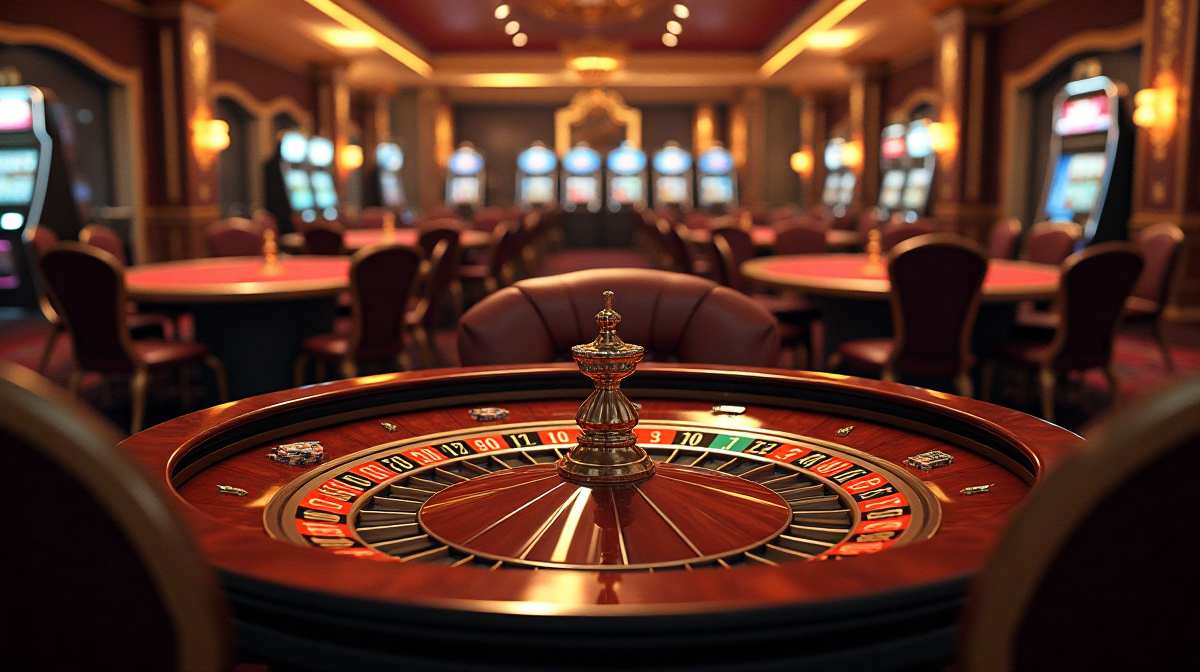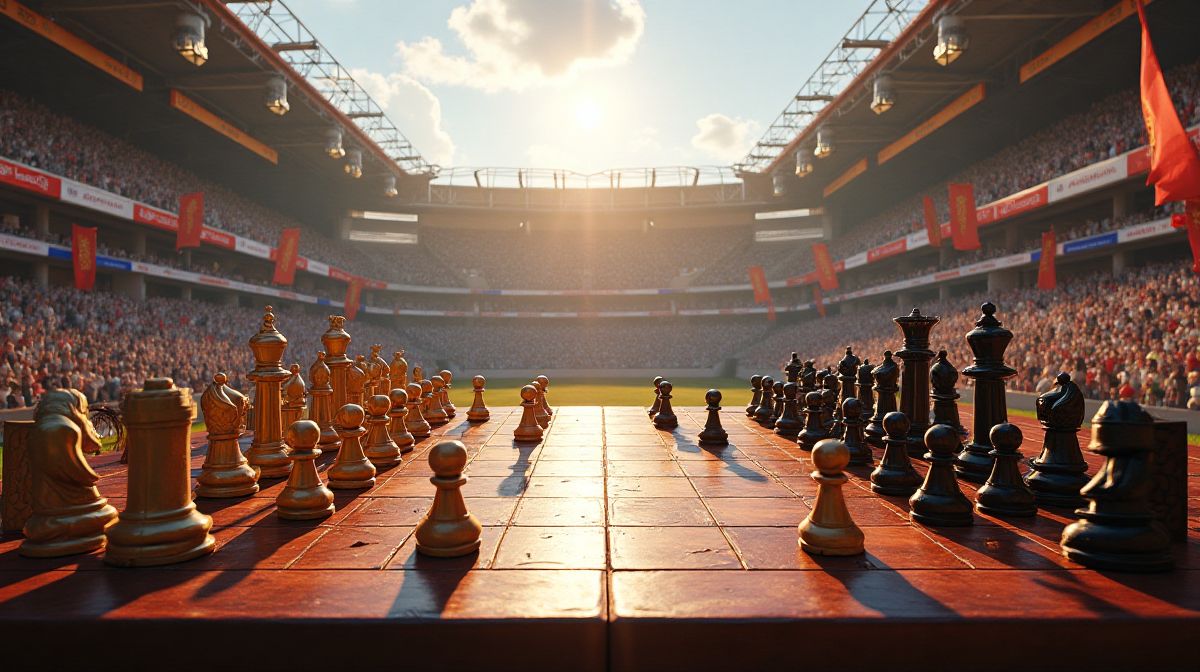Chess vs. Chinese Chess: Which Wins?
The Timeless Appeal of Strategy Games
For centuries, strategy games have captivated minds, challenging intellect and fostering critical thinking. From ancient war games to modern board games, the allure of outmaneuvering an opponent remains a fundamental human fascination. Among these, chess and Chinese chess (Xiangqi) stand out as paragons of strategic depth and cultural significance. Some enthusiasts are even keen to зайти в пин ап to find further challenges, while others explore tactical games.
Setting the Stage: Chess and Chinese Chess – A Brief Overview
Chess, originating in India, evolved over centuries into the game we know today, conquering hearts worldwide. Chinese chess, or Xiangqi, boasts an equally rich history, deeply embedded in Chinese culture, with origins tracing back over a thousand years. Both games share the core principle of capturing the opponent's king, yet their execution and underlying philosophies differ dramatically. Many now скачать пин ап to enhance their strategic thinking.
Why the Which Wins? Question Arises (Cultural Significance & Debate)
The debate over which game is “better” isn’t purely academic. It’s fueled by cultural pride, differing strategic philosophies, and a genuine curiosity about which game presents a greater challenge. The question often emerges as a point of national pride, particularly within China regarding Xiangqi. Even the availability to пин ап can be a topic of conversation – showing worldwide recognition for games of skill.
Understanding Chess
Core Rules and Gameplay of Chess
Chess is played on an 8x8 checkered board with 32 pieces: 16 for each player (White and Black). Each piece—king, queen, rook, bishop, knight, and pawn—moves in a specific manner. The objective is to checkmate the opponent’s king, placing it under immediate attack with no possible escape.
Piece Values and Strategic Considerations in Chess
Chess piece values (pawn=1, knight/bishop=3, rook=5, queen=9) represent relative strength, guiding strategic decisions. However, a piece's true value is contextual. Positional advantages, control of the center, and pawn structure are just as crucial. It can also be invaluable to зайти в пин ап to learn valuable skills for other strategic challenges.
Historical Evolution of Chess & Its Global Popularity
The evolution of chess from chaturanga in 6th-century India to its modern form is a story of adaptation and refinement. Its global spread, facilitated by trade and colonialism, cemented its status as a universal game.
Complexity & Computational Challenges (AI perspective - Deep Blue, Stockfish)
Chess's complexity confounded AI developers for decades. IBM’s Deep Blue defeating Garry Kasparov in 1997 was a landmark achievement. Today, engines like Stockfish surpass human capabilities, highlighting the game's rigorous logic and substantial computational demands.
Understanding Chinese Chess (Xiangqi)
Core Rules and Gameplay of Chinese Chess
Xiangqi is played on a 9x10 board with pieces placed on the intersections. The goal is to checkmate the opponent's general (king). Pieces include the general, advisors, elephants, horses, chariots, cannons, and soldiers.
Piece Values and Unique Aspects (e.g., River, Palace) in Xiangqi
Xiangqi features unique elements like the river, which restricts the movement of certain pieces, and the palace, a designated area for the generals and advisors. Piece values differ somewhat from chess; cannons, for example, have a unique attack mechanism—jumping over another piece to capture. Obtaining a strategic edge is valuable, just like when trying to скачать пин ап.
Historical Origins and Cultural Importance of Xiangqi in China
Xiangqi's roots are intertwined with Chinese military strategy and philosophy. It is not merely a game but a cultural symbol representing intelligence, foresight, and strategic thinking.
Strategic Depth & Common Tactics in Xiangqi
Xiangqi emphasizes long-term strategic planning and positional play. Common tactics involve controlling key points on the board, creating strong defensive formations, and utilizing the cannon’s unique attack capabilities.
Comparing the Games: Key Differences
Board Size and Layout Comparison
Chess utilizes an 8x8 grid, while Xiangqi uses a 9x10 board with pieces positioned on the intersections. This difference fundamentally alters the scope and dynamics of the game.
Piece Movement and Capabilities – A Detailed Contrast
The movement of pieces differs drastically. Xiangqi’s horse doesn’t jump like its chess counterpart, but moves one space orthogonally then another diagonally. Cannons have a unique firing mechanism, and the river and palace impose specific restrictions.
Opening Strategies: Chess vs. Chinese Chess
Chess openings are highly formalized, with established theory and variations. Xiangqi openings tend to be more fluid, focusing on quick development and gaining control of the center.
Mid-Game Tactics and Endgame Scenarios: How They Differ
Chess mid-games often involve complex piece maneuvering and tactical combinations, while Xiangqi’s mid-game typically centres around positional advantage and strategic pawn structures. Endgame scenarios are dramatically different due to the unique piece capabilities.
Role of Initiative and Control – Which Game Emphasizes It More?
Both games value initiative, but Xiangqi arguably places a greater emphasis on maintaining control of key areas and exploiting positional weaknesses throughout the entire game.
Complexity and Computational Analysis
State Space Complexity – Which Game Has More Possible Positions?
Xiangqi is generally considered to have a higher state space complexity than chess, meaning it possesses a greater number of legally possible positions.
Game Tree Complexity – Assessing the Depth of Calculations
The game tree complexity, representing the number of possible game variations, is also higher in Xiangqi, making exhaustive searches computationally more challenging.
AI Performance: Current Status & Future Prospects in Both Games
AI has achieved superhuman performance in both chess and Xiangqi, but Xiangqi remains a slightly greater challenge for AI due to its higher complexity.
Evaluating Difficulty for AI – What Makes Each Game Challenging?
Chess’s challenge lies in its vast branching factor and positional nuances. Xiangqi's lies in its unique piece movements, irregular board, and reliance on long-term strategic planning.
Skill Ceiling & Learning Curve
Initial Learning Phase: Ease of Picking Up the Basics
Chess has a slightly steeper initial learning curve, especially understanding piece values and basic opening principles. Xiangqi’s rules are relatively simpler to grasp.
Mastery & Strategic Depth: How Long to Become Proficient?
Mastery in both games requires years of dedicated study and practice. However, Xiangqi’s strategic depth and positional nuances may demand a longer commitment to reach a comparable skill level.
Availability of Training Resources (Books, Online, Coaches)
Chess boasts a far more extensive range of training resources—books, online courses, coaching services—than Xiangqi.
Regional Strengths & Player Base Size - Chess vs. Chinese Chess
Chess has a significantly larger global player base and a more established international competitive scene. Xiangqi enjoys immense popularity in China and a growing, but still smaller, international presence.
Cultural Impact & Global Reach
Chess’s Cultural Prevalence in the West
Chess is deeply ingrained in Western culture, appearing in literature, film, and art. It’s often associated with intellect, strategy, and sophistication.
Xiangqi’s Deep Roots in Chinese Culture and Expanding International Interest
Xiangqi is an integral part of Chinese cultural heritage, often played in tea houses and parks. International interest is growing, fueled by the game’s inherent appeal and China’s increasing global influence. Understanding strategies can even help when deciding to пин ап on events.
Tournament Scene & Competitive Landscape for Each Game
Chess has a well-developed international tournament circuit, culminating in the World Chess Championship. Xiangqi’s competitive scene is primarily concentrated in Asia, with significant tournaments held in China and other countries.
Media Representation (Movies, Literature, Streaming)
Chess has enjoyed numerous portrayals in popular media, most notably in films like “Searching for Bobby Fischer” and in the Netflix series “The Queen’s Gambit”. Xiangqi’s representation in mainstream media is less prevalent, though its presence is growing.

The Winner – A Nuanced Perspective
Arguing for Chess: Global Popularity, Computational Analysis
Chess’s widespread global adoption, vast theoretical knowledge, and mastery by AI engines demonstrate its intellectual rigor and enduring appeal.
Arguing for Xiangqi: Strategic Complexity, Unique Tactical Opportunities.
Xiangqi’s complexity, unique pieces, and reliance on positional play provide a distinct strategic challenge, offering novel tactical opportunities. You can improve these skills whether you скачать пин ап or practice Xiangqi.
The Subjectivity of “Winning” – It Depends on the Criteria
Defining a “winner” depends on the criteria used. If popularity is the measure, chess wins. If strategic complexity is paramount, Xiangqi might have the edge.
Can We Truly Declare a Superior Game?
Ultimately, declaring one game superior is subjective. Both chess and Chinese chess are masterpieces of strategic thinking, offering unique challenges and rewards.

Conclusion
Summarizing the Key Similarities and Differences
Both chess and Chinese chess are abstract strategy games demanding foresight, planning, and tactical prowess. However, they differ significantly in board layout, piece movement, strategic emphasis, and cultural context.
The Enduring Appeal of Both Chess and Chinese Chess
The enduring appeal of both games lies in their boundless depth, intellectual stimulation, and capacity to captivate players for generations.
Encouraging Exploration of Both Games – A Call to Play
Whether you choose to master the intricate strategies of chess or delve into the nuanced world of Xiangqi, both games offer a rewarding and enriching experience. Embark on the journey of strategic discovery and unlock your inner strategist.

